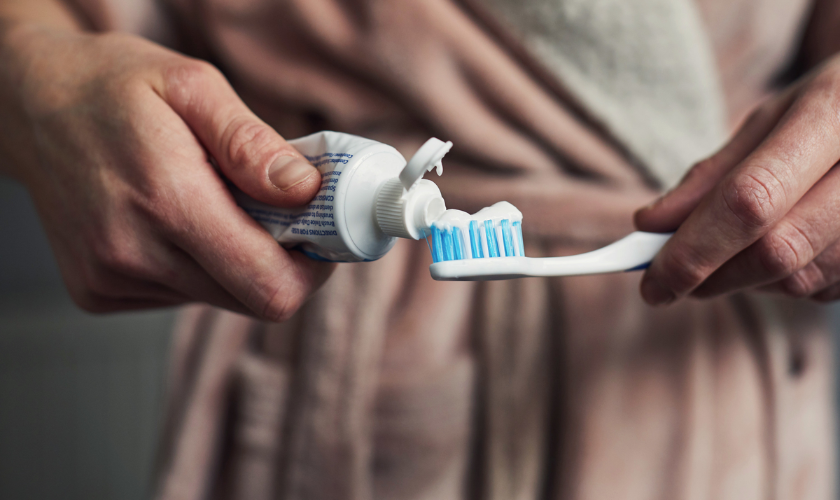3609 Jamison Way Castro Valley, CA 94546

Long before the invention of modern toothpaste, people around the world were already finding inventive ways to keep their smiles bright and healthy. From crushed bones to herbal concoctions, ancient societies employed a range of fascinating techniques to combat dental issues and freshen their breath. These early methods reflect a deep understanding of oral care, despite the lack of sophisticated tools and products we rely on today. Journey with us through the ages to discover how people maintained their dental hygiene with natural ingredients and inventive practices. Read on to uncover the surprising and effective methods that paved the way for today’s oral care practices.
The Evolution of Oral Hygiene
Before the advent of modern toothpaste, people employed a variety of creative methods to maintain oral hygiene. Ancient civilizations recognized the importance of dental care, using materials and techniques that were readily available to them. These practices, while primitive compared to today’s standards, laid the groundwork for contemporary dental hygiene.
Ancient Methods and Materials
In ancient Egypt, around 3000 BCE, people used a mixture of crushed eggshells and bones to clean their teeth. This abrasive substance helped remove food particles and plaque. Ancient Greeks and Romans adopted similar methods, utilizing abrasive powders made from materials like charcoal and crushed oyster shells. These early dental care routines were rudimentary but effective in their time.
The Chinese, on the other hand, developed a more sophisticated approach. As early as 500 BCE, they used a combination of herbs and salt to create a form of toothpaste. This herbal mixture not only cleaned teeth but also freshened breath. The use of these natural ingredients demonstrates an early understanding of the need for both cleaning and freshening the mouth.
The Role of Chewing Sticks and Brushes
Chewing sticks, as mentioned, were a popular tool for oral hygiene across various cultures. These sticks were chewed until the end frayed, creating a brush-like effect. The natural bristles helped clean teeth and massage gums. The use of such sticks continued well into the medieval period in some parts of the world, even as more sophisticated methods began to emerge.
In the Middle Ages, European societies started using cloths and rags to clean their teeth. These cloths were often dipped in a mixture of salt and vinegar or other cleaning agents. While not as effective as modern brushes, they provided a basic method of maintaining oral hygiene.
The Advent of Toothpowder
By the 18th century, toothpowders became popular in Europe and the Americas. These powders were made from a variety of ingredients, including crushed bone, chalk, and various herbs. Toothpowder was a significant advancement from previous methods because it combined abrasiveness with medicinal ingredients to improve dental health.
The formulation of toothpowder often included ingredients like baking soda, which helped to neutralize acids and whiten teeth. Although these early toothpowders were not as advanced as today’s toothpaste, they represented an important step in the evolution of oral care.
Transition to Modern Oral Hygiene Products
The transition to modern toothpaste began in the 19th century. Innovations in dental care, including the development of fluoride toothpaste, improved the effectiveness of oral hygiene practices. However, the natural methods used by ancient cultures laid a strong foundation for these advancements.
Today, dental care is more advanced than ever, with a variety of products and techniques available to maintain oral health. However, the use of natural ingredients and traditional methods still offers valuable insights into how people managed their dental hygiene before the invention of modern products.
Modern Perspectives on Natural Oral Care
In recent years, there has been a renewed interest in natural and holistic approaches to oral care. Many people are turning back to natural remedies and ingredients, inspired by the methods used by ancient civilizations. This trend reflects a growing awareness of the benefits of natural products and a desire to reduce reliance on synthetic chemicals.
Natural dental care products, such as those containing herbal extracts and essential oils, are becoming more popular. These products often combine the wisdom of traditional practices with modern scientific knowledge to offer effective oral care solutions.
The Importance of Professional Guidance
While natural methods can be beneficial, it is essential to seek professional advice to ensure proper dental care. Dentists in Castro Valley, can provide valuable insights into maintaining oral health and addressing any issues that may arise. Regular check-ups and professional cleanings are crucial for preventing dental problems and ensuring overall oral health.
Incorporating Natural Methods Today
Incorporating natural methods into modern dental care can be a valuable addition to traditional practices. For instance, using herbal mouth rinses or natural toothpaste options can complement regular brushing and flossing. These practices can enhance oral health while embracing the wisdom of ancient methods.
Maintaining Balance in Oral Care
Maintaining a balance between traditional and modern methods can offer the best results for oral health. By combining the knowledge gained from historical practices with contemporary dental care, individuals can achieve a comprehensive approach to maintaining their teeth and gums.
Oral care in Castro Valley continues to evolve, embracing both modern innovations and the benefits of natural methods. By understanding and incorporating these diverse practices, individuals can achieve optimal dental health and preserve their smiles for years to come.




